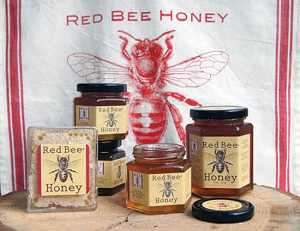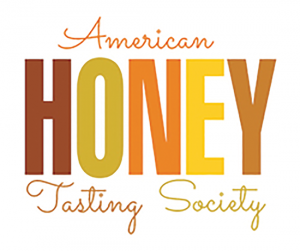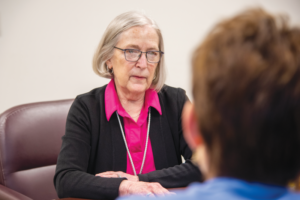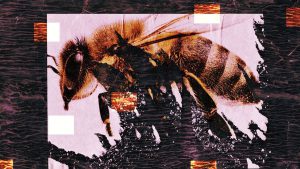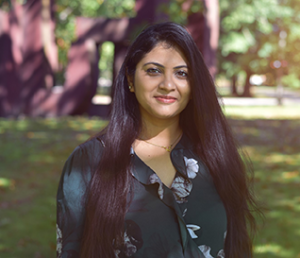By Kim Flottum
Annual Interview Section
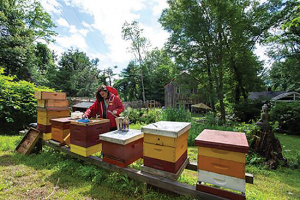 So, as long as this is the interview issue, this time I thought I’d add my two cents worth and bring some attention to somebody I’ve had the good fortune to be associated with for over a decade. Carla Marina Marchese and I met a bunch of years ago at a Backyard Beekeepers meeting in Connecticut. An old and dear friend, Ed Weiss was being honored and I was invited because Ed and I go way back, before I came to Ohio, working together on various Connecticut beekeeper issues.
So, as long as this is the interview issue, this time I thought I’d add my two cents worth and bring some attention to somebody I’ve had the good fortune to be associated with for over a decade. Carla Marina Marchese and I met a bunch of years ago at a Backyard Beekeepers meeting in Connecticut. An old and dear friend, Ed Weiss was being honored and I was invited because Ed and I go way back, before I came to Ohio, working together on various Connecticut beekeeper issues.
Not long after that, in 2003 Kathy and I ran into her at the National Honey Show in London, which was sort of a surprise for all of us because the three of us were the only Americans in attendance. Though short, it was educational for all of us, and it was my first experience really at honey tasting. Her interest in honey was evident even then however and over time we kept in touch, because my interest in honey sort of paralleled hers but mine has always been in the plant world, hers in the finished product – the honey from those plants. I even got her to do an article or two on the subject.
But for the 10 years or so before that, Marina was in business. She runs a small, varietal honey business, sourcing varietal honeys from where ever she can find them for customers, primarily up-scale gourmet food shops, and cheese specialists in the ritzy parts of New York City. She deals in only the best of the best, and pretty much only wholesales to these specialist customers. Because of her branding and clientele, she doesn’t have to do a lot of advertising or promotion. Word of mouth from one top chef to another, from one top shelf cheese seller to another seems to work best, and, as she says, the business seems to run on its own. Reputation is what works here, and hers is definitely top shelf.
As part of this were years of making beekeeper crafts – balms, salves, and soaps all using essential oils like lavender, orange or eucalyptus – and your memory of these aromas gets razor sharp. Along with these experiences, she worked for an Italian wine importer to learn the tasting techniques, and has sat in on as many wine, chocolate, olive oil, coffee and cheese tasting classes as she could find to learn the methods and vocabulary and techniques of ‘tasting’.
Plus, she had years of experience simply tasting honeys to make sure they were what the seller said they were. As she puts it – sampling, tasting, smelling, bottling, pouring, wiping drips, labeling, licking fingers, spoons and spatulas – all was tasting experience.
One anecdote she shared. “Over the years I’ve spilled my share of five gallon pails in my bottling room and had to mop it up. Once you spill that much blueberry or orange honey on the floor, and then spend hours cleaning it up, you can guarantee that you will remember the color, smell, flavor and texture of that honey!”
But the concept of terroir was new to me, but made perfect sense – take any honey plant, say white sweet clover, and grow it in a slightly acidic soil and you will get a honey with a definite, particular taste. But grow that identical plant in a slightly basic soil, and you will get a honey with a somewhat different flavor, aroma, taste or color. Soil is often the greatest change maker, but the total environment the plant grows in has an effect. A Honey Connoisseur, like a Wine or Olive Oil Connoisseur knows these differences and takes them into consideration when tasting any of these products. I used to know a honey taster from Sioux Honey that could tell the difference between sweet clover honey from Montana and Minnesota. I didn’t know then the minute differences terroir could make. Marina opened my eyes to that concept.
So about six or so years ago we were talking, and in that time she had really explored honey tasting, and terroir’s affects on the plants honeys were from. She also spent time learning the vocabulary of expressing color, aroma, taste, flavor, and the essence of tastes – salt, sweet, bitter, sour, and savory, and how to use your nose to gather flavors and memory to identify how any particular honey tasted.
So we put our heads together and came up with the idea of The Honey Connoisseur. The book would explore more than 30 different honey plants – where they grew, what was special about them, what issues there were about growing them, and what affects, if any, terroir would have on their growth. Marina then would discuss in detail the qualities of the honey these plants would produce and how to taste to tatse and describe them. Once we had the plant list solved, the rest went pretty fast though it was an interesting, learning and enjoyable process to make it happen.
But there was so much more to this than I was prepared for.
Chapter five. How to taste honey. Marina’s skills, education and experience really came to light here. She talks about color, aroma, the history of sensory analysis, taste and flavor, and she actually developed the first tasting wheel for honey, much like those for olive oil or wine. Her glossary of tasting terms is particularly useful for this.
Then we worked on how to select good quality honey – finding a reliable source, the container the honey is in, the label and certainly the taste. Add to this the pairings we tried – with cheese (see her article this month, which led me to think about Marina as an interviewee), and other goodies.
And finally, she produced some recipes that use specific honeys to make them special. Working with her on this project was truly a delight, and today she continues to sell these honeys as her RedBee Honey Business, she holds tasting sessions, and educates anybody interested – beekeepers, chefs, other tasters of good food.
And of course now there is the American Honey Tasting Society she founded, a formal organization that functions to organize and educate all of the rest of us on the finer points of how to taste honey. This organization is as sophisticated and professional as any wine or olive oil school is because it was founded on the same concepts as old school educational organizations. If, and when you want to take the next step in the art and science of tasting honey, this is the place to go.
And tasting honey, really tasting honey is an art, a science and an experience I hope you get to enjoy. It is one more miracle you and your bees get to partake in.





